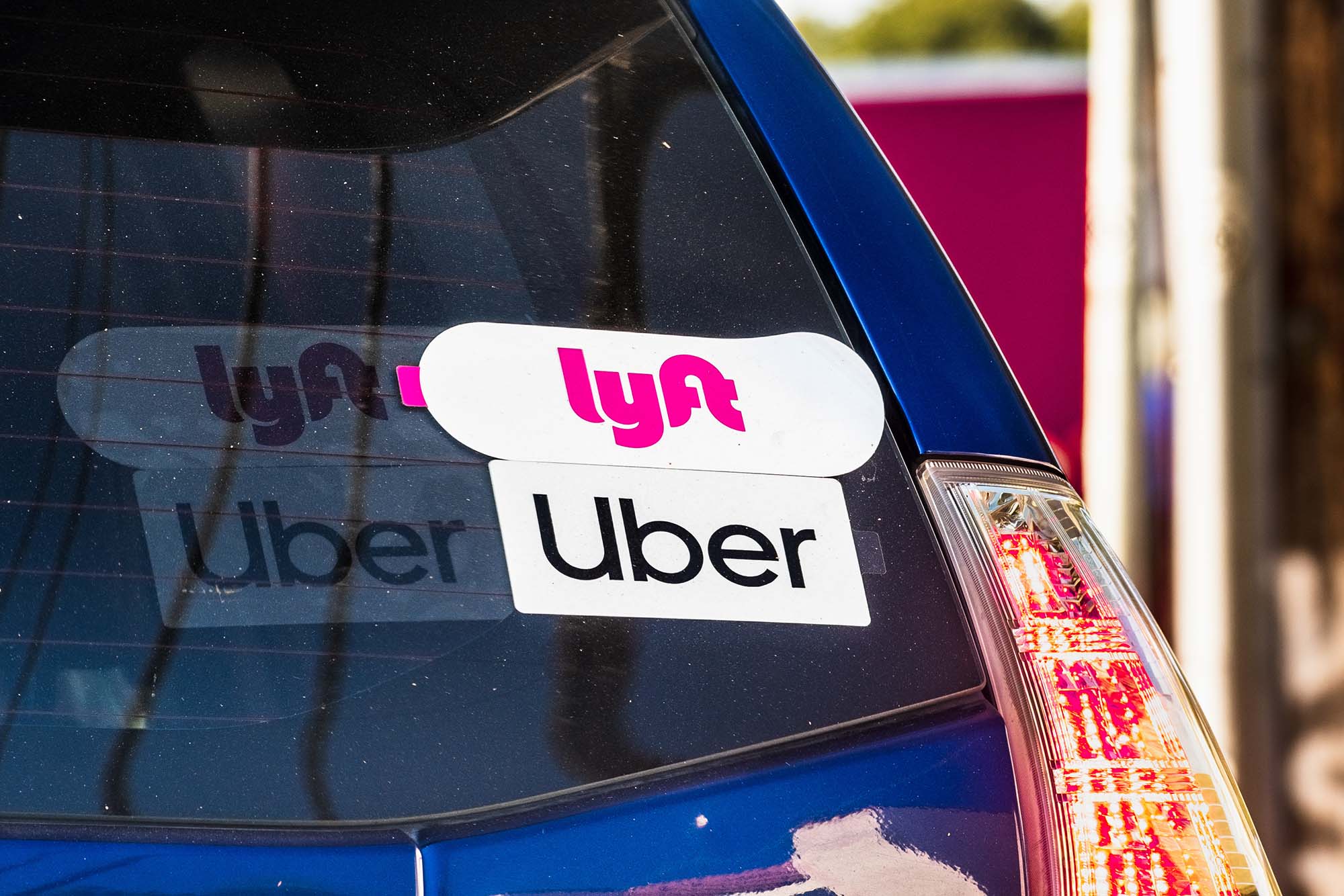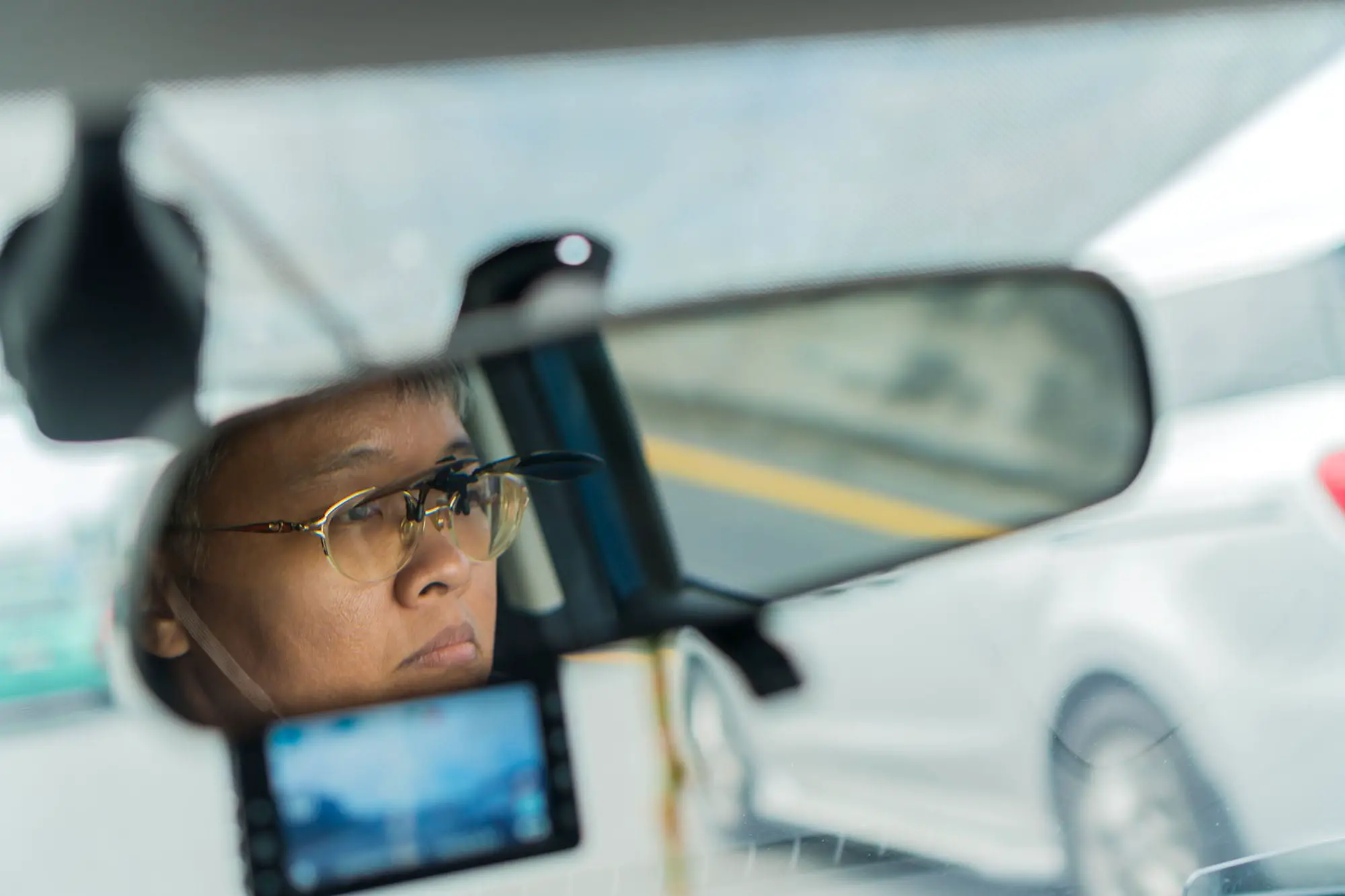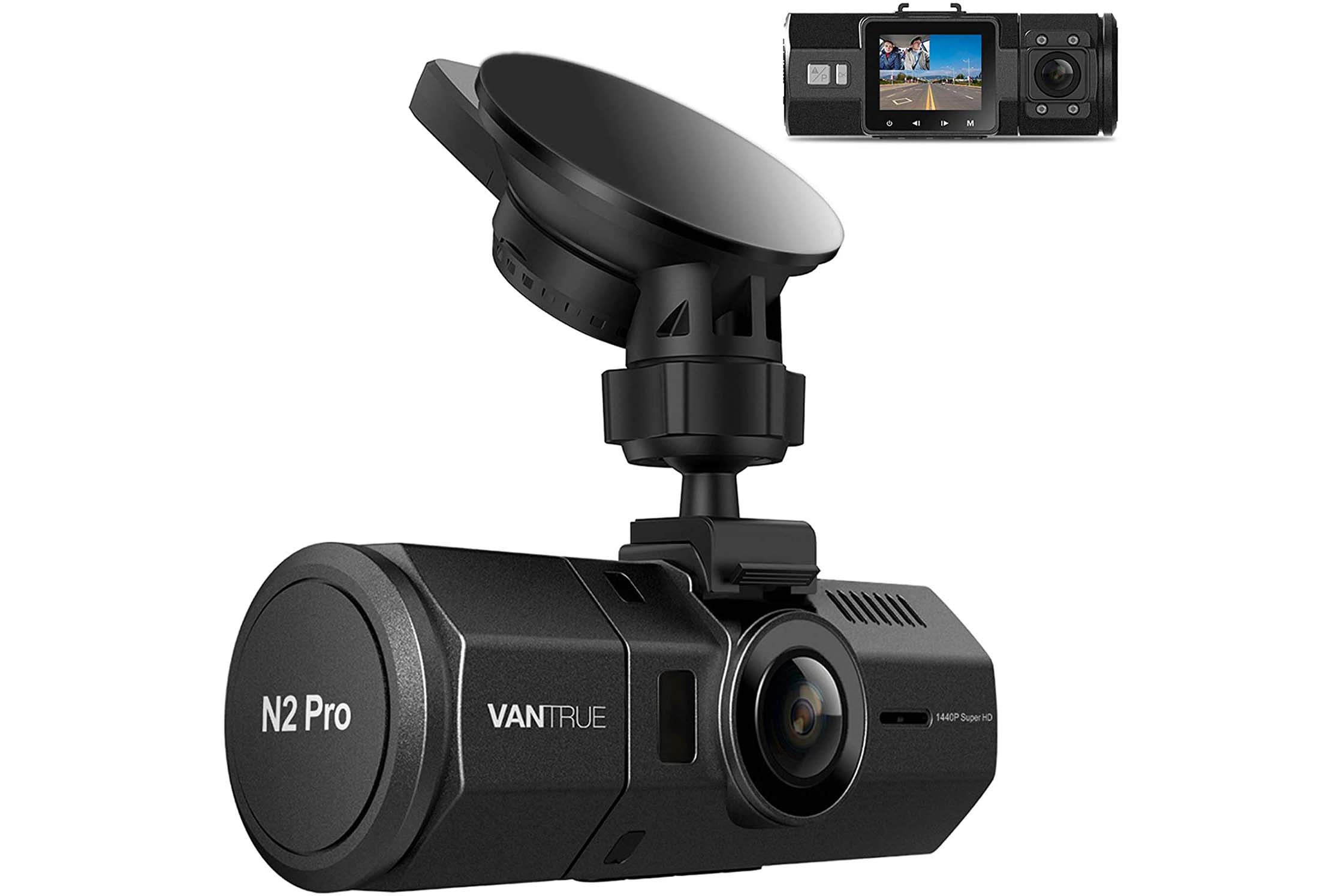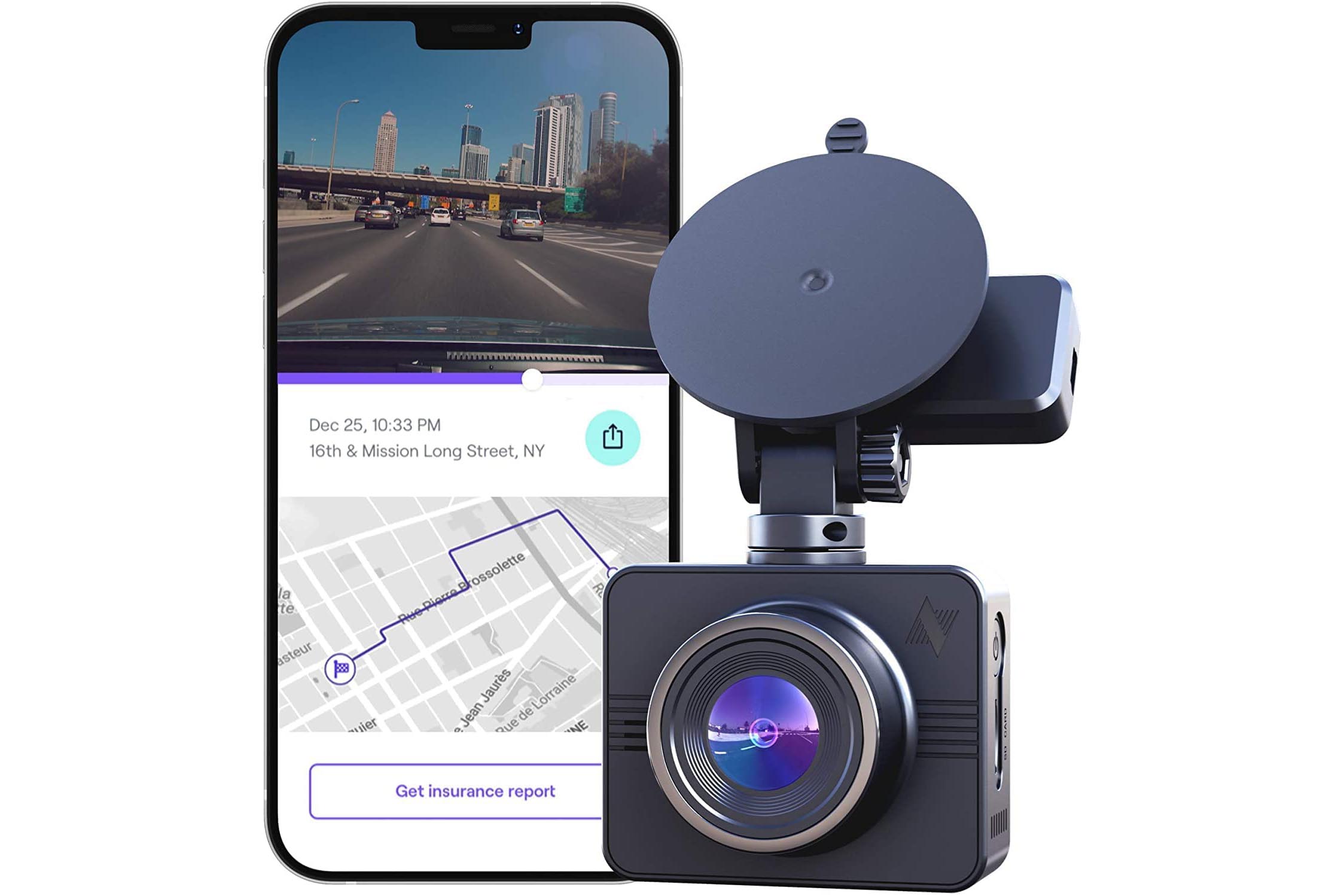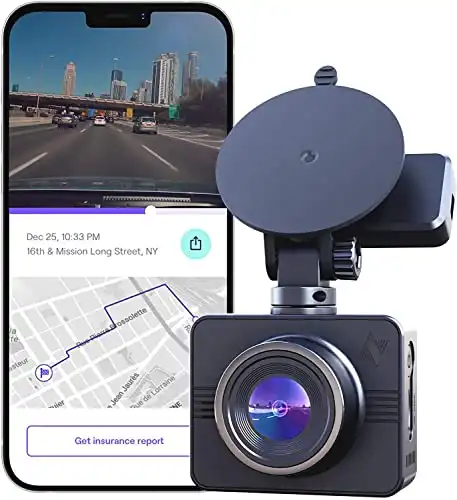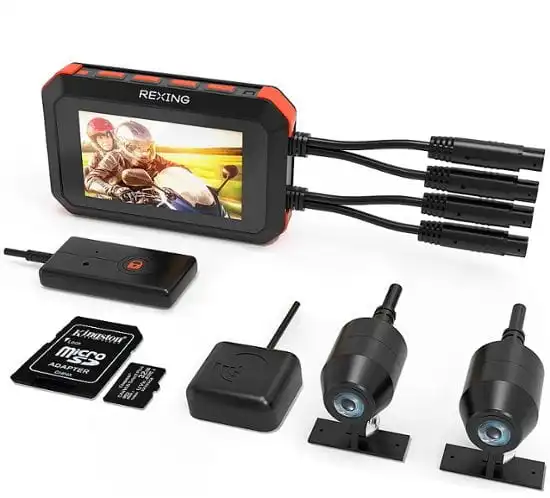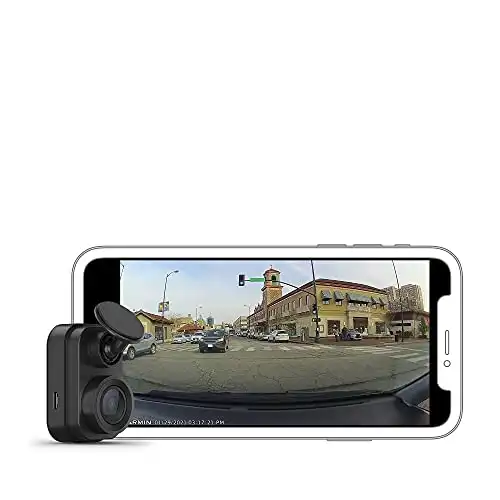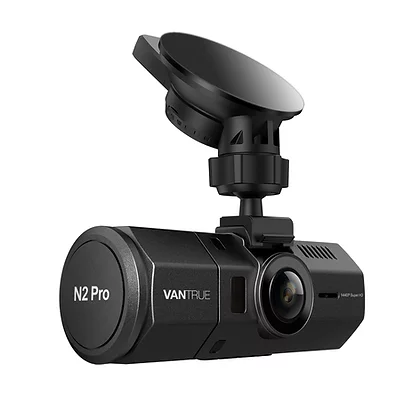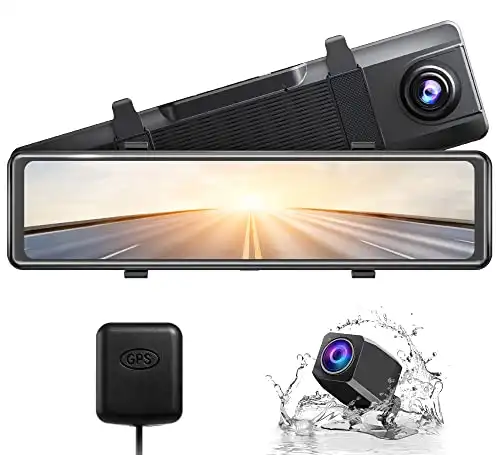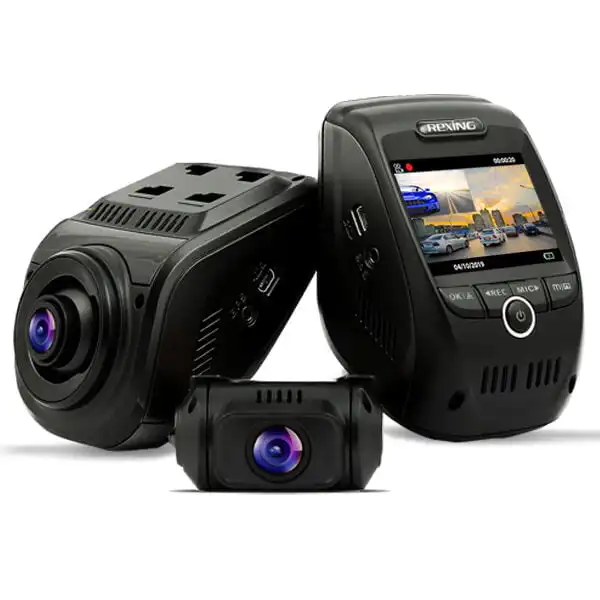You might be wondering what a blog on the best affordable dash cam is doing on a blog about smart home devices. Car dash cams aren’t smart home devices, I know. But I wanted to share a personal story of how dashboard cameras can be an “ace in the hole” when working with insurance companies after a car accident. It could be the difference between hundreds and thousands in a settlement offer.
Some backstory here: I worked as a rideshare driver before running this blog for nearly three years. In 2020, I decided to take the plunge and purchase a car to do rideshare full-time. Thanks to my work in tech news and previous review experience, the folks at Vantrue were kind enough to send me the N2 Pro dash cam to review.
Things went well: of course, I caught all kinds of things you see people with dash cams capture, like dangerous drivers, bad behavior, and all sorts of unexpected events (and a few crazy passengers). Little did I know that my dash cam was about to provide crucial video evidence of two car accidents in three months.
More on Dash Cams
The Accident(s)
In February 2021, I turned on the Lyft app and immediately got an hour-long trip. Typically getting one of these early in the night signals a good night because you can take your time getting back home. The trip went well. After stopping at the local convenience store for a quick break, I turned the app back on to look for trips back and got lucky and found another quickly.
But I never made it to that pickup. While waiting to merge on the highway at the bottom of the ramp, a drunk driver rear-ended me. He never hit the brakes. The impact force lifted me out of my seat even with a belt on and nearly pushed me into oncoming traffic.
What followed was months of arguing with my insurance company, which so happened to be Lyft, and the drunk driver’s insurance too. My neck and shoulders burned for days, and I couldn’t move my head without pain.
The insurance company’s initial offer was just $1,500. Had I not had dash cam footage to prove the force of impact during the accident or the fact that the other driver never applied the brakes, I might have been forced to take it. But I held firm, knowing my dash cam proved my version of the story.
I ended up settling for $7,000. The best part about this was I didn’t need a lawyer to do it because the evidence was so clear that I was the victim of this accident. Little did I know that my dash cam would save me again just two months later!
Call it bad luck, but I was again rear-ended in June by a distracted driver, this time on the clock with Uber. By the grace of God, I wasn’t injured in this accident, but one of my passengers was. The impact force with this one was even more violent, as shown by the video, enough to rip the dash cam off the vehicle’s windshield.
Footage from my dash cam ensured I was ultimately cleared of any fault. Luckily, I wasn’t hurt this time but still collected nearly $1,300 in compensation after an initial offer of just $500. So in a year, my dashcam made me $8,300 without a lawyer – more than $6,000 over the insurance companies’ initial offers.
Imagine what would have happened on these trips had I not installed a dash cam, much less what would have happened to my insurance premium! While I don’t wish this on anyone, I no longer get behind the wheel without turning on my dash cam. I learned the hard way why dash cams are so valuable!
Are dash cams worth it? I’d certainly say they are!
Before we continue, you should ALWAYS consult an attorney in case of an accident. If you’re seriously hurt, get representation! Working with insurance adjusters can be frustrating and challenging. Your dash cam video will be important evidence, however!
The Best Affordable Dash Cam of 2023
As I said previously, I have owned and reviewed several dashboard camera models over the years. The best option will be different for everyone. It comes down to the features you’re looking for. Be prepared to spend some money, though, if you want quality. Most higher-end dash cameras cost over $100. Here are the best deals we’ve found at the moment. We’ll start with what we think is the best affordable dash cam on the market right now, The Nexar Beam GPS.
- High-quality video
- Automatic event detection
- Automatic event notification
- Unlimited cloud-based storage
- Not compatible with wireless Android Auto or Apple CarPlay
- Somewhat muted audio
While the Vantrue N2 Pro was our first dash cam, we’ve recently outfitted our entire family with the Nexar Beam GPS. While it’s not the cheapest car camera on the market, the camera on this dash cam is surprisingly good — making it good enough to call it the best affordable dash cam on the market. We also love its fantastic connectivity features.
The Nexar Beam uses your phone to record(although it has onboard memory if it can’t connect to your phone). It will start recording as soon as you start the car and automatically shuts off when the vehicle is shut off. The Nexar app allows you to review footage and create family groups that receive alerts if your Nexar detects an evasive maneuver, hard stop, or accident, along with a clip of the incident and your location for emergency services.
Cloud storage with Nexar is completely free, which is another big plus. And the insurance reports are pretty cool, although we’re good with never having to use it after our accidents.
- 3" LCD monitor
- Includes front and rear 1080p cameras
- Wi-Fi and app connectivity
- Built-in GPS
- Includes free 128GB memory card
Until recently, motorcycle drivers didn’t have many options for dash cams. After all, motorcycles don’t have a dash! But leave it to the folks at Rexing to figure out a way to make it work. The MTC1’s 3″ LCD screen connects to your handlebars, with 1080p cameras attached to the bike’s front and rear. And yes, everything’s waterproof, just in case.
- Car-key sized dash cam allows you to hide it behind your mirror, and attract less attention
- 1080p video
- Parking view and live view available if continuously powered and in range of Wi-Fi
- Supports up to 512GB memory cards
The Garmin Dash Cam Mini 2 is the best-selling affordable dash cam on Amazon, and it’s clear why. 1080p footage from a camera the size of your keyfob is incredible, and it can handle 512GB memory cards, which is also equally impressive. If you connect the dash cam directly to the car battery, you unlock a cool feature that allows you to view live footage from your car if it’s within range of a Wi-Fi connection.
Garmin also offers a service called the Vault, which allows you to save a recording, and if you want to get crazy, you can buy up to four cams and view them all through the Garmin app on your phone. That’s pretty cool, we think.
Exclusive! Save 30% with promo code SASN2P
- Outstanding Night vision capability
- Dual 1080p video cameras
- Crystal clear video
- 18-month warranty
- No app or connectivity
- Cumbersome controls
Our Vantrue N2 Pro was on our windshield through two car accidents, and the crystal clear audio and video (and probably the best night vision for a cabin dashcam we’ve seen) was the reason why I did so well in my settlements — well, that, and a lot of research. But we never had a problem with our N2 Pro the entire time we had it, and we know tons of rideshare and delivery drivers swearing by these cameras.
If I had to nitpick one thing about the N2 Pro, that would be its menu system. Occasionally I would find myself in a parking lot, fiddling with the menu to get what I wanted. It’s an expensive dash cam, and people at this range want more for their money and a menu system that isn’t like brain surgery sometimes.
- Replaces your windshield mirror
- 2.5K front camera, 1080p rear backup camera
- GPS receiver included
Some drivers might prefer to replace their entire rearview mirror. Doing so offers some benefits: the cameras in these units are typically larger and offer better picture quality in theory. They’re also less distracting: having a dash cam hanging from your windshield can be in the way, sometimes.
While we don’t have personal experience with this one, the AKASO Mirror Cam is by far the best-reviewed model on Amazon. It features 2.5K video for the front-facing camera and 1080p for the rear camera. The wide-angle lens will give you a much broader view of what’s behind you than your traditional rearview mirror, which is a huge plus.
- Offers 4K front-facing video, 1080p rear
- Built-in GPS and Wi-Fi
- Internal battery to power parking monitor
- Automatic crash detection
4K dash cams still cost a lot of money, and we think most drivers will be well enough served by one of the other options above. However, if you’re set on 4K, we recommend the V1PMax. It supports 4K for the front camera and 1080p in the back and offers a parking mode that doesn’t require it to be hardwired into your car.
All this power doesn’t fit in a small package, so the V1P is pretty beastly. If you’re an easily distractable driver, the size of this thing might annoy you, and the price is a bit steep.
Dash Cam FAQ
Here are some questions on dash cams that we frequently hear from our readers.
Yes, recording your drives can be helpful if an accident occurs. They are typically inexpensive, and the footage captured by your dashboard cam could prove beneficial to show to law enforcement and your insurance adjuster.
Yes! When dealing with your insurance company, let them know you have video footage of the accident. I would also review it before talking to anyone to ensure your story is straight. Accidents are traumatic events, and you might not remember everything that happened.
I wouldn’t immediately let other drivers’ insurance adjusters know you have this footage unless settlement negotiations aren’t going well or they are attempting to place fault on you when their insured is entirely at fault.
In most cases, yes. Dash cams are an excellent way to track what happens during accidents, especially if there is any doubt about who’s at fault. In most cases, they can be beneficial in court because it shows how things unfolded and when people stepped out into traffic (for example).
A word of caution: You should only use your dash cam on public roads – never record on private property. If you have passengers (especially with rideshare), ensure everyone knows they’re being recorded and give them the option to refuse to take the ride (both companies allow you to cancel for this reason).
Not directly. No insurance company offers a discount specifically for installing a dashboard camera in your car. However, in the event of an accident, it may prevent a premium increase, especially if the footage shows you were mostly or entirely not at fault.
While some dash cams have GPS tracking features, it’s likely that if your car is stolen, the thief will have the common sense to disconnect it. However, some dash cam models now have features that allow them to send footage directly from the vehicle, so you may have crucial photographic evidence and an idea of where they’re headed. A dash cam on the windshield is a bit of a theft deterrent, too, in my opinion.
While you might think a dash camera is only good for accidents, it might also be good for a traffic stop. If law enforcement tickets you for something the footage shows you didn’t do, as long as it is clear, it can be used as evidence in your defense.
Protect yourself from these situations and insurance fraud by installing dash cams in your company vehicles. Many dash cams offer valuable features for business owners, like motion detection to monitor the car while it’s parked, GPS tracking functionality, a second camera to monitor behind the vehicle or the passenger compartment, and record audio (sometimes equally as important in an accident).
Most cameras use a cigarette lighter to power themselves, although some use a rechargeable battery (we’d recommend avoiding the latter). Optionally, you can connect the dash cam directly to the car’s battery so it always has power. Some dash cams require this for “parking mode” to work correctly, although a few models have a small internal battery to capture these events if they occur.
Only one state, Connecticut, specifically forbids the use of dash cameras. We have a rundown of state laws here.
Types of Dash Cams
Generally, most dash cams include a front-facing camera attached to the windshield by a suction cup. However, some models replace the windshield mirror entirely but are more challenging to install. Some models include a second camera inside the vehicle or a monitor behind the car (typically attached to the rear window or the license plate). While most record directly to a Micro SD card inside the camera, some models offer online storage options, typing using your phone to record and transmit your data to the cloud when you’re on Wi-Fi.
The Bottom Line: Dash Cams are a Smart Buy
We no longer get behind the wheel of our cars without our dash cams. And after our experience, we are proof of how vital they can be in the event of an accident. The above options are all great alternatives, and the best dash cam for your needs will vary.
If you have any questions on dash cams, we’d be glad to help! Send us a message today.
